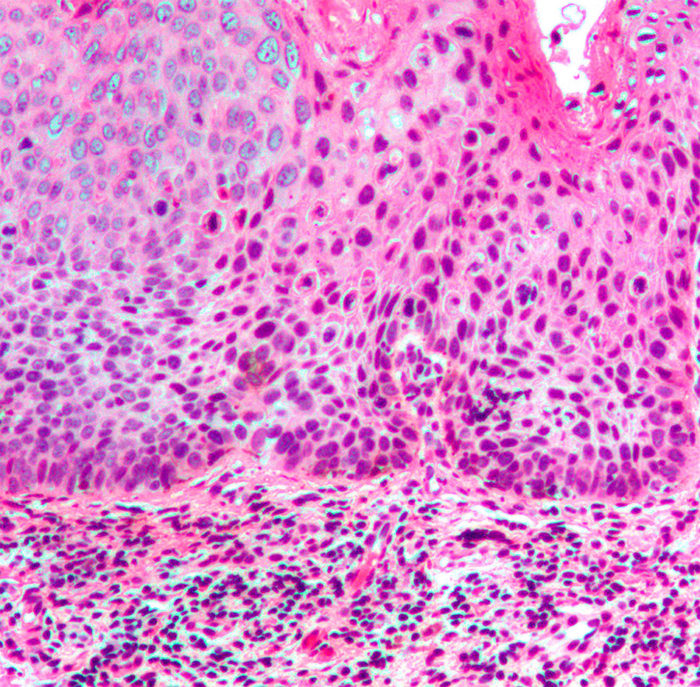HIV-positive women at increased risk for developing pre-cancerous growths
New research at Washington University School of Medicine finds HIV-positive women are more likely to develop pre-cancerous growths on their genitals

Vulvar intraepithelial neoplasia (VIN), a pre-cancerous growth. Image courtesy of Wikimedia Commons.
Pre-cancerous growths on the genitals of women are on the rise, according to a recent report published in Obstetrics & Gynecology, the journal of the American College of Obstetricians and Gynecologists (ACOG). These pre-cancerous growths—vulvar intraepithelial neoplasia (VIN)—do not develop into cancer in the majority of patients. But because it is not possible to determine which growths will develop into cancer, ACOG has recommended that VIN be removed.
L. Stewart Massad, MD, professor of obstetrics and gynecology at Washington University School of Medicine, has studied a sub-group of women whom he determined were at increased risk for developing genital warts and pre-cancerous VIN.
Following HIV-infected women
“We’ve known for the last two decades that HIV-positive women are at higher risk for cervical cancer,” said Massad, whose latest research findings were published by ACOG.
As a co-investigator with the Women’s Interagency HIV Study (WIHS), Massad has followed a group of 2,791 HIV-infected women and 953 uninfected women for up to 13 years. These women received genital examinations every six months with suspicious lesions biopsied for VIN.
Findings from the WIHS study were presented in part at the meeting of the International Papillomavirus Society in Berlin in September 2011. Preliminary results indicated that although genital warts and VIN were more common among HIV-positive women than uninfected women, wart regression is common even in HIV-positive women and cancers are infrequent. Massad said these positive outcomes may be the result of frequent medical exams and follow-up treatments available to HIV-positive women enrolled in the study.







